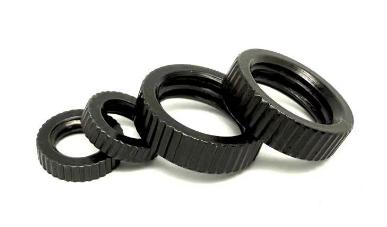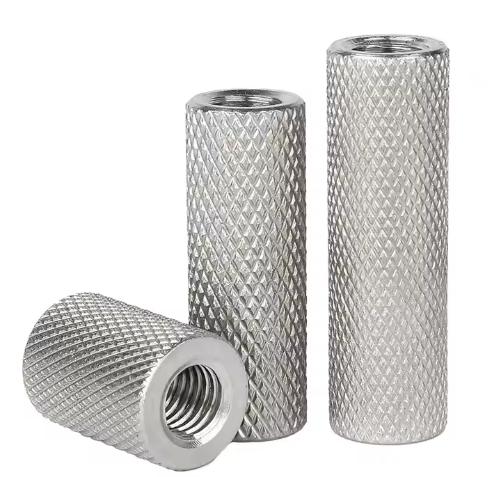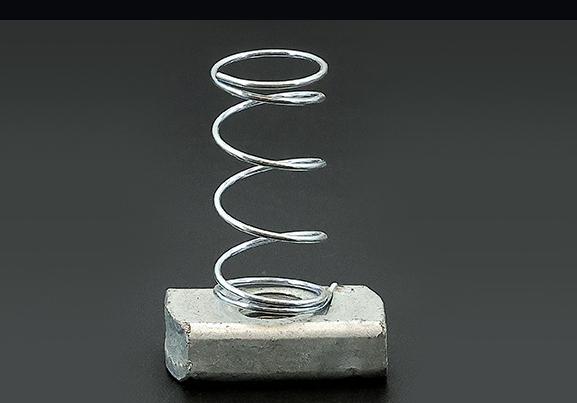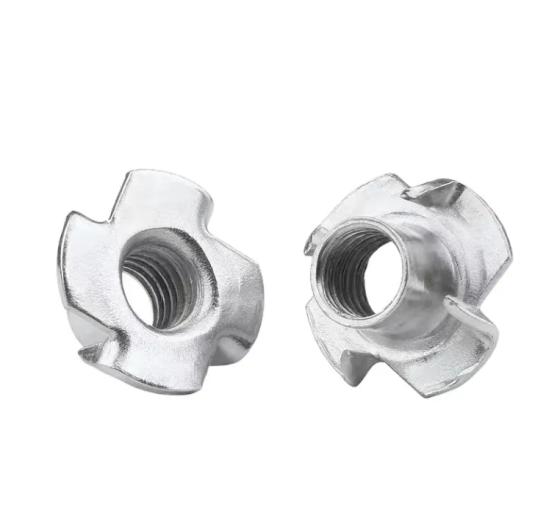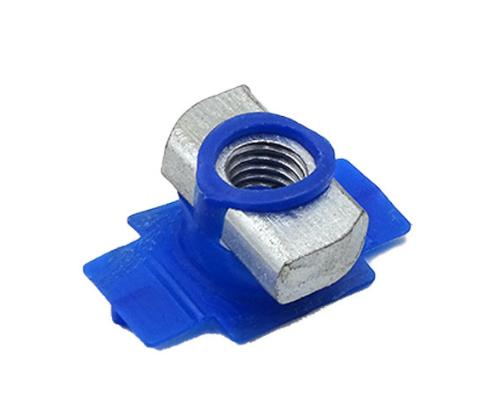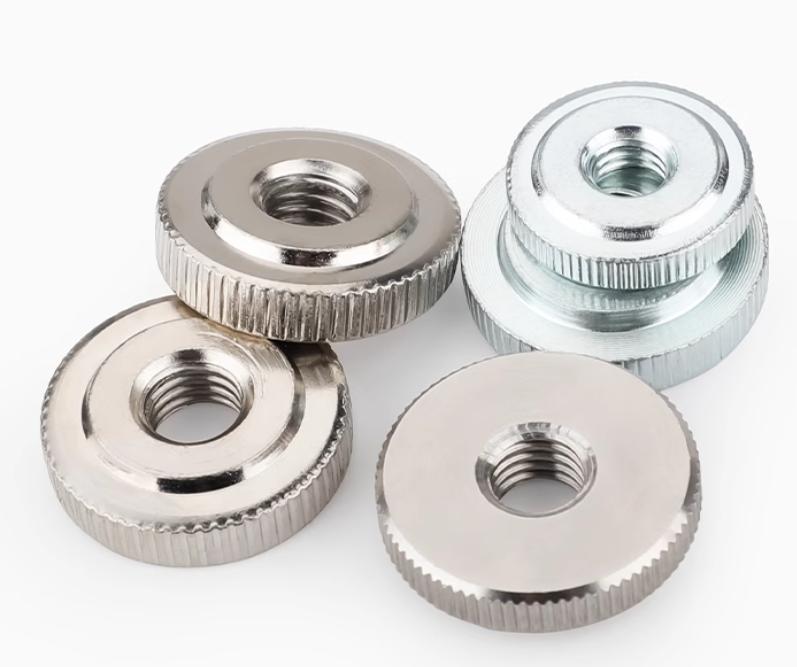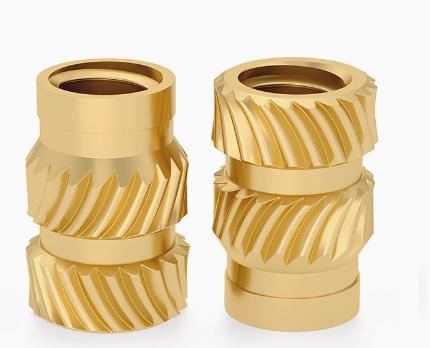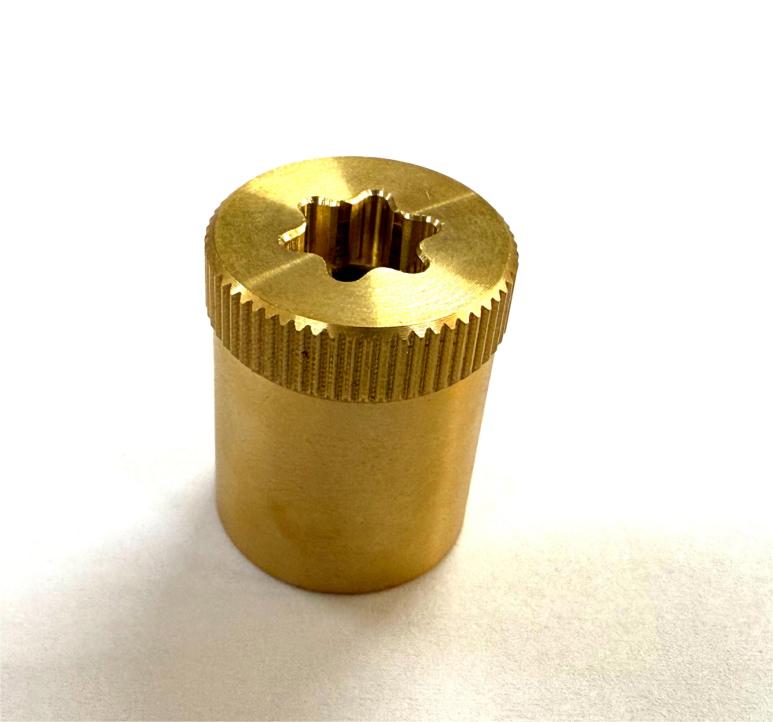Flange Nut vs Lock Nut: How to Choose the Right Fastener for Your Needs
Manufacturing in the industrial sector, mechanical assembly or maintenance of automobiles all depend on small nuts that provide stability and security for their components. However, it can be difficult to distinguish between flange nut vs lock nut, as they seem similar, however their differences go well beyond their appearances.
This article will provide you with the primary distinctions between flange nut vs lock nut to help you determine easily which one is best suited to your situation. It doesn’t matter if you’re an engineer an expert in purchasing or an amateur DIYer You’ll discover practical tips and valuable advice in this article.
Table of Contents
Part 1. What are Flange Nuts?
Flange nuts are a kind of the standard hexagon nuts with one side is equipped with a large Flange, which provides more surface of contact as well as an the effect of preventing loosening, which provides general stability for the joint. They usually have serrated or circular anti-slip designs on their flanges that are circular. This design is used to serve two purposes simultaneously, increasing the contact area and reducing resistance to loosening, which can improve overall stability of connections.
Flange nuts provide superior quality of installation and security for connected components They are the most preferred solution for steel structure assembly that require rapid installation and equally all-over force. Flange nuts are widespread across many industries. They are particularly useful for quick and consistent installation of parts.

Key Features of Flange Nuts:
Built-In Washer Function
Flanges are used as integrated washers and eliminate the need for separate springs or flat washers in assembly and also cutting costs, while making assembly easier. It also makes assembly easier.
High Installation Efficiency – Ideal for Automated Production Lines
The design of Flange nuts allows for quick placement and fastening, which makes them ideal for automated tightening systems used in the automotive industry, home appliance manufacturing and other production environments that require mass production.
Even Load Distribution – Protect Connected Surfaces
An increased flange surface ensures an even distribution of clamping force to prevent deformation or damage caused by stress localized on components.
Strong Anti-Loosening Performance
Flanges with serrated edges increase friction between the nut and the workpiece and increase the resistivity to loosening. They’re a good choice for areas with low to moderate levels of vibration.
Various Material and Surface Treatment Options
Flange nuts can be found in stainless steel, and alloy steel options with different surface treatments such as zinc plating nickel plating, zinc plating, or Dacromet coating to suit various working conditions. The users can choose between the zinc plating and nickel plating, or Dacromet coating finishes that are tailored to their specific needs to increase resistance to corrosion.
Part 2. What are Lock Nuts?
Lock nuts are a specific type of nut with anti-loosening features that ensure the connection secure when exposed to continuous motion or vibration particularly those that are that are subject to constant movement or vibration. Lock nuts have improved structural designs that effectively stop loosening due to impacts, vibrations or repeated use, compared to standard nuts.
Lock nuts come in many types, including locks made of nylon to all-metal lock nuts up to double-nut locking systems, self-locking nuts, and the common torque lock nuts each designed for specific working environments and needs for performance.

Key Features of Lock Nuts:
Excellent Anti-Loosening Performance
Lock nuts ensure secure holding against shock, vibration and torque with a variety of design options, including embedded nylon threads and inserts, tapered configurations, or in combinations with other accessories, such as washers. This stops unintentional loosening.
Ideal for High-Vibration, High-Load Environments
Lock nuts are perfect for any application that requires stringent security standards, like construction equipment, heavy machinery railway systems, aerospace components. They are dependable in their fastening capabilities in a variety of stress conditions.
Diverse Structural Options
Different locking mechanisms are offered to meet a variety of needs For instance:
- Nylon Insert Lock Nuts: They feature the ring of nylon embedded which creates an interference with bolt threads.
- All-Metal Lock Nuts: Utilize deformed regions (e.g. or slits, Oval shapes) to make friction and keep it from getting loose.
- Double-Nut Locking: Uses two nuts locked against one another for an electronic lock.
- Wedge and Tapered Designs: Rely on structural deformation to enable self-locking.
Reusability Depends on Type
Certain types, like all-metal lock nuts are recyclable. However nylon insert lock nuts generally lose their locking capability after a number of uses, and should be replaced regularly.
Part 3. Key Differences Between Flange Nuts and Lock Nuts
Knowing the main distinctions between flange nuts and lock nuts is vital to choosing the appropriate fastener for your particular application. Below, we delve deeper into these distinctions.
| Comparison Aspect | Flange Nut | Lock Nut |
| Structure | Incorporated with a large flange base | With an locking mechanism (e.g. insert of nylon or embedded metal) |
| Functional Focus | Distributes pressure, prevents material damage | Enhances anti-loosening performance and anti-vibration capabilities |
| Washer Required for Installation | In general, not necessary | Not required for certain types |
| Ease of Assembly/Disassembly | It’s relatively simple | Certain types of vehicles require more torque. |
| Typical Applications | General machinery, vehicle assembly, etc. | Environments with high vibration or heavy load |
| Cost | Moderate | The rate is slightly higher for certain types of |
1. Structure
- Flange Nut: Flange nuts include an integral flange that is wide at the bottom that generally has a circular shape and is serrated on the edges to provide additional grip and contact with the surfaces that are to be joined.
- Lock Nut: Lock nuts have specialized locking mechanisms, like nylon inserts, threads deformed, or embedded metal parts designed to resist the possibility of loosening from vibrating or dynamic forces.
2. Functional
- Flange Nut: Structured to resist loads equally across a larger surface and to protect connected components from damage. While providing moderate resistance against loosening. the nut is essential for any kind of application.
- Lock Nut: It is designed to give solid anti-loosening capabilities through increasing thread friction while making sure that the connection is secure under shock, vibration, or tension conditions.
3. Need for Washers
- Flange Nut: They generally don’t require any additional washers since their flange acts as a washer that is prefabricated, making assembly much easier and decreasing the hardware requirements.
- Lock Nut: Depending upon their design Certain lock nuts require washers (either flat or spring washers) to ensure optimal locking; different styles like nylon insert lock nuts, typically don’t.

4. Ease of Assembly and Disassembly
- Flange Nut: Installation and removal is quick and easy using conventional torque tools. Perfect for automated assembly procedures as and applications that require fast fixation.
- Lock Nut: Removal and installation may require a higher torque for high-friction or all-metal lock nuts, which makes disassembly more difficult but resulting in greater security when it comes to fastening.
5. Common Application Scenarios
- Flange Nut: Flange nuts are used primarily for medium to low vibration applications, such as automobile chassis machines housings, machinery housings, and other metal structures, that require a an even distribution of load and quick assembly procedures.
- Lock Nut: They are typically used in vibration and heavy load environments like engines, construction equipment, rail transportation or aerospace applications, where it is of utmost importance to have secure and non-vibrational connections.
6. Cost Considerations
- Flange Nut: An efficient and relatively low-cost fastener that provides an excellent value for the majority of general-purpose fastening applications due to its removal of separate washers.
- Lock Nut: Although lock nuts are a bit more cost due to their complex locking mechanisms, they’re worth the price in applications requiring high vibrations and safety.
Part 4. Recommendations Based On Different Application Scenarios
When deciding between locks and flange nuts for your project It is of paramount importance to be aware of its specific requirements and specifications for optimal performance and security.
Your project will be ideally served by flange nuts, if they require an even load distribution and speedy assembly since they provide the highest performance when it comes to assembly.
A flangenut’s integrated flange provides a greater contact surface, which allows the transfer of load more evenly across their mating surface, thereby decreasing the risk of material destruction or deformation. It is because of this characteristic they are appropriate for use in low or moderate vibration areas in which even pressure distribution is essential.
Flange nuts speed up assembly and help save money because they eliminate separate washers which saves time and money when using automated assembly lines that are high-volume like automotive assembly appliance assembly at home, or general machine assembly. They’re a perfect solution for assembly lines that are high volume in areas such as assembly of appliances, automotive assemblies and general machine assembly.
Lock nuts must be considered in any project that is subject to extreme vibration, cyclic dynamic loads, or in situations in situations where safety is of most important concern.
Lock nuts are designed to endure the toughest conditions with their specially designed locking mechanisms, like nylon inserts, threads deformed or features for locking with metal.
Uses for such things as railway bridges, locomotives aerospace hardware and heavy equipment require fixing solutions that are strong and durable under repeated shock, vibration, and stress. Lock nuts are a positive security for such devices that will prevent catastrophic failures by the loosening of fasteners.

When budgetary restrictions or manufacturing processes, or maintenance requirements come into consideration, you should carefully consider the cost-effectiveness and reusability of various lock nuts prior to deciding on a suitable solution.
Insert lock nuts made of nylon offer excellent locking performance, however they can be ineffective after a while leading to replacement, and possibly increasing the cost of maintenance. However, certain lock nuts could be able to reclaim many times over, though the torque for installation may increase and the initial investment could rise slightly. Achieving a balance between cost, durability as well as the ease of assembly and disassembly frequency is crucial in choosing the best fixation solution that is best suited to the requirements of your business.
By coordinating the fasteners you choose to the specifications and goals for your plan, you’ll be able to ensure stability of the structure along with operational safety and effectiveness throughout the duration of your project.
Part 5. How Can KENENG Fastener Manufacturer Support Your Projects?
KENENG is a world-class manufacturer and supplier of top fasteners that have decades of experience working in the industrial sector. Our primary focus is on the production of solid flange nuts and lock nuts made of top materials like carbon steel, stainless steel, and alloy steel for applications that require accuracy and long-lasting durability.
A commitment to quality assurance in each KENENG product ensures that they will stand the test of time and can handle your most challenging requirements easily!
High-Quality Products Available Now
KENENG provides a wide range of fasteners that are designed to provide outstanding durability, corrosion resistance and long-term performance in a variety of workplaces.
Precision Manufacturing and Customization Solutions
KENENG’s strict quality control procedures ensure consistency in product quality Our rigorous quality control processes ensure consistent product quality, and the OEM customization services allow you to customize the dimensions of fasteners, thread types and surface treatments to your specific project.
Technical Support and Consultation Services
Our engineering experts provide expert advice to help automobile producers, equipment integrators and contractors in finding solutions to fastening that are cost-effective while also ensuring efficiency and ease of installation.
Reliable One-Stop Procurement
KENENG’s supply chain is efficient and logistics assures prompt delivery and speed up your procurement process, whether it’s for large-scale production or for more specific small-scale orders.
Working with KENENG is not just about receiving top-quality fasteners, as well as a full-service support throughout the duration of your project to ensure security, stability and effectiveness from beginning to end.

Wrap Up
Lock nuts and Flange nuts offer distinct advantages. The key is choosing the one that will satisfy the requirements of the specific environment in which you work. Understanding the difference between them will increase the durability and security. If you require any help selecting the right fastener for your needs Don’t hesitate to call to KENENG! Our engineers are available to offer professional guidance and sample assistance!

